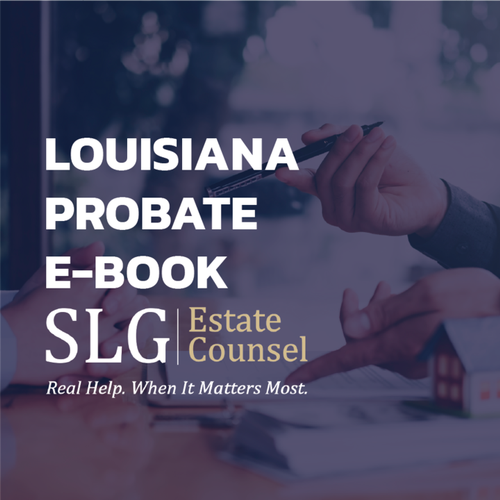A last will and testament is the deceased’s requirements for distributing their assets after death, a way to provide for loved ones, and a way to establish a long-lasting legacy. However, wills can have inherent shortcomings. While an experienced succession attorney could help ensure that a will complies with state law and complements the testator’s intent, even the most ironclad will could be compromised by forgery. 
Louisiana’s Requirements for a Last Will and Testament
Louisiana presumes that most adults have the legal capacity to create a will. However, wills must still comply with state law. The Bayou State recognizes two categories of wills:
- Notarial wills. A notarial will is written, signed, and attested by at least two competent witnesses. Notarial wills must also be stamped by a notary public. A notarial will is only valid if:
- The will is written.
- The will-writer, or testator, is of sound mind.
- The will is signed on each page, including the last.
- The will is attested by at least two competent witnesses and stamped by a notary public.
- Olographic wills. An olographic will is written entirely in the testator’s own handwriting. While olographic wills do not require witness attestation, they must be signed and dated. While olographic wills have no such requirements and may be valid only with a date and signature, they are comparably easy to modify and forge.
Challenging a Forged or Fraudulent Will
When the estate executor initiates a succession, they must send notice of the proceedings to each party interested in the estate. Under most circumstances, interested parties include the deceased person’s family members, named heirs, and creditors. Upon receiving notice of succession, interested parties have a legal right to request information about the decedent’s will and its provisions.
If an interested party suspects that a will is forged or fraudulent, they may file a will contest in court. A will could be challenged if:
- An interested party believes the will is forged. Evidence of forgery is sufficient for the Louisiana succession court to declare the will invalid, either in part or in its entirety. In order to prove that a will is forged, the testator may have to locate samples of the testator’s handwriting and have the samples analyzed by a handwriting expert. Often, a reputed expert’s opinion is sufficient to prove forgery.
- An interested party believes the will is fraudulent. A will is fraudulent if the testator was induced to make estate decisions predicated upon either misrepresentation or fabrication. Proving fraud is usually easiest when the testator is still alive.
- An interested party believes the testator was subject to coercion or undue influence. While state law presumes that most adults have the legal capacity to write a will and create their own estate plan, the Louisiana Code of Civil Procedure mandates that testators both be of sound mind and acting of their own accord. However, not all forms of mental illness necessarily disqualify a Bayou State resident from writing a will. If you believe that a loved one’s will was subject to coercion or undue influence, a Louisiana probate attorney could help you collect the evidence needed to prove your claim.
The Burden of Proof in Will Contests
A will contest can only be filed by an interested party. Since a will contest is technically considered a lawsuit, prospective litigants must be able to demonstrate that they have the legal standing necessary to bring a complaint before the court.
Typically, a complainant in a will contest must be able to show that they have an interest in the estate and will suffer damages if the will is recognized as valid.
However, even if you have the requisite standing to file a will contest, the court will expect that you furnish compelling evidence of fraud or forgery. Since the state presumes that most adults have the capacity to write a will, you will need to counter this presumption by collecting evidence of your argument. This could include:
- Handwriting samples
- Expert analyses
- Eyewitness testimony
- Medical records
- An original copy of the will
If a will is proven invalid by fraud or forgery, the person or party responsible for modifying the will could face criminal prosecution.
Contact a Louisiana Succession Attorney
If you believe your loved one’s will is a product of fraud or forgery, please call Scott Law Group - Estate Counsel at 504-264-1057 to get started on your case.
|
Related Links: |




